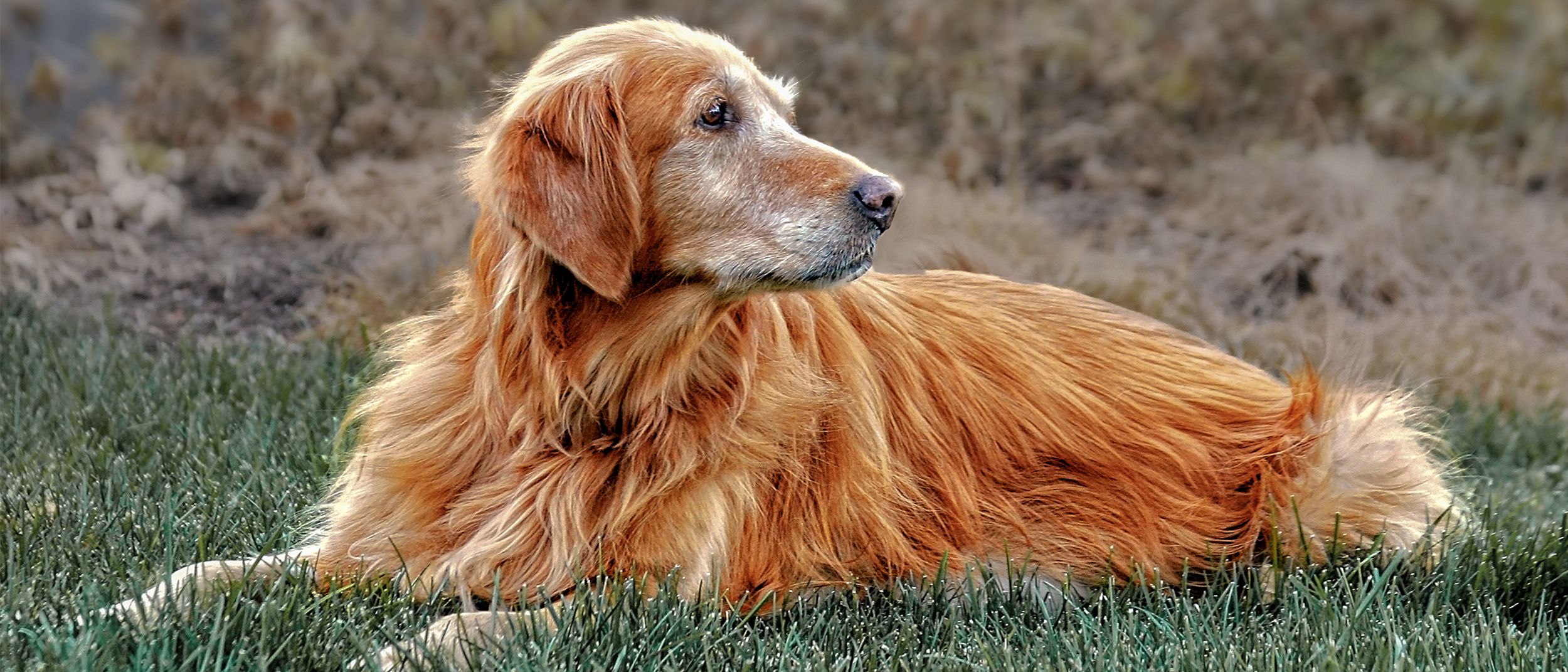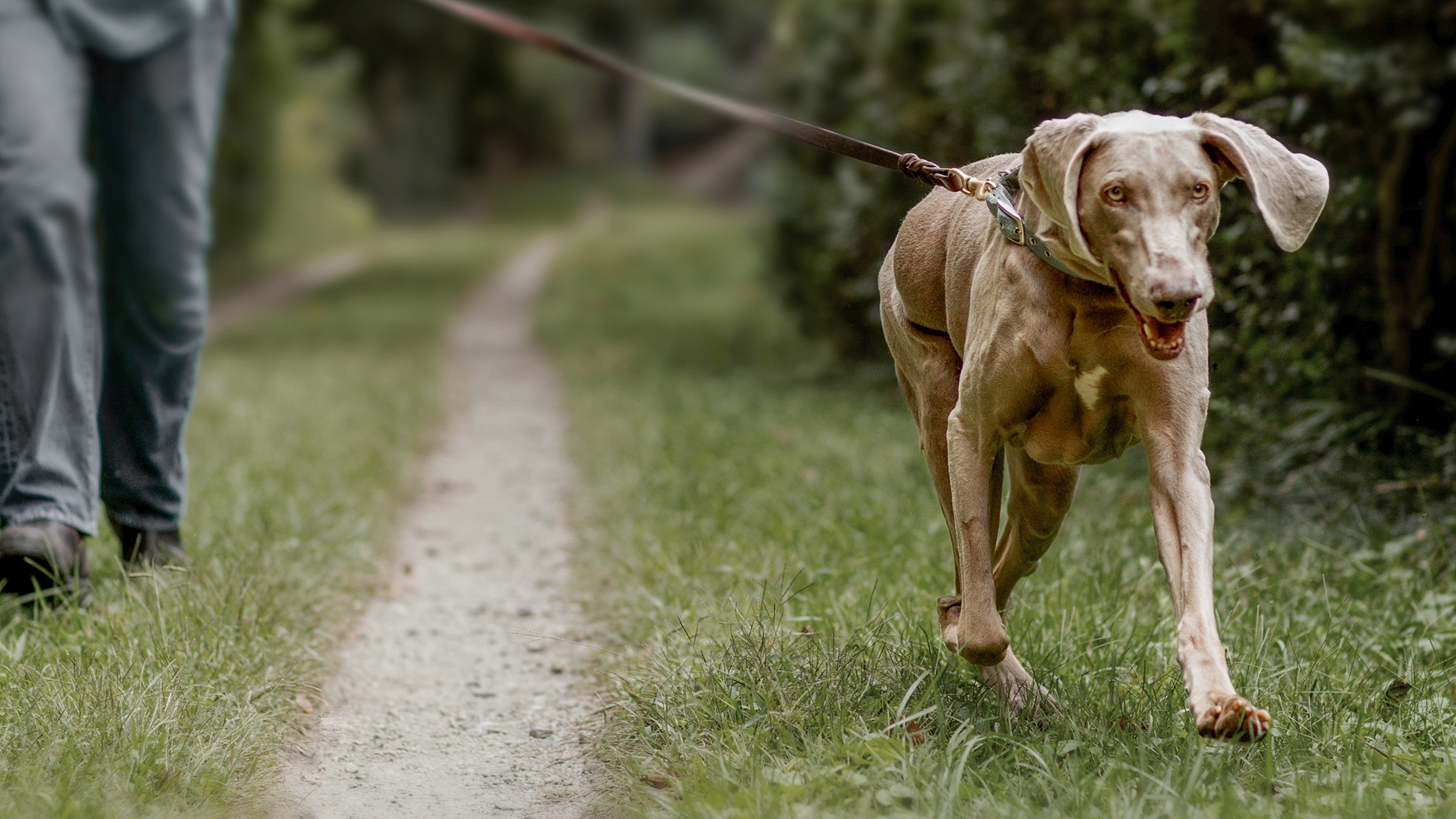Signs your dog is getting old

The aging process in dogs is a gradual one that can sometimes go unnoticed by their owners. There are a number of signs to be aware of when identifying whether a dog is a senior, as well as a number of changes that aging dogs experience as they grow older.
Aging
Aging is a natural, complex biological process that may impact the body's ability to maintain several metabolic processes and increases its susceptibility to disease. As inevitable as it is, there are ways to slow down the process or at least avoid speeding it up. The main thing is to prevent or delay the onset of disease where possible, identify it at the earliest opportunity if it does strike, and treat it vigorously to preserve the dog's health as long as possible. Preventative medicine is the favored approach.
When is a dog considered old?
Age is a number not a condition. Maturity and old age are arbitrary concepts defined on the basis of life expectancy. A dog is regarded as mature when it reaches the mid-way point of its expected lifespan and it is old when it has three quarters of its expected lifespan behind it. Of course, dogs of different sizes do not age in the same way or at the same rate. Small breeds have a longer life expectancy than large breeds, so a small dog will age more slowly. Conversely, large dogs take longer to grow to adulthood and age faster. That clearly means that they do not have the same needs.
Consequences of aging for the body
Aging is a natural process that affects the entire body. No organ system is spared. That said, individual susceptibility or the predisposition of an organ will contribute to the development of a disease. The main thing is to understand the aging process to slow down its effects.
Fat deposits increase
Dogs tend to put on weight as they grow older. The animal builds up its fat deposits at the expense of muscle mass. When a lot of muscle mass is lost, the animal's mobility will be affected, leading it to expend less energy. As a result, the dog puts on more weight, loses more muscle mass, and so on. This makes it vital to monitor the animal's body condition so that it is prevented from putting on weight and losing muscle mass. It is also essential to treat any pain the dog may have that might prevent them from exercising.

Dental problems
Build-up of plaque causes gum inflammation and infections (periodontal disease), which can lead to the teeth falling out. These gum problems mean the dog finds eating more difficult because chewing is painful.
As well as the unpleasant bad breath this produces, the rapid increase of bacteria that spread in the body can cause damage to other organs. The immune system is permanently working overtime, which puts a great strain on the body, making it more susceptible to infection.
Dental hygiene is essential throughout the dog's life, but especially so in aging dogs. Learning how to brush dog teeth and ensuring your dog is used to teeth brushing is a preventive measure that will help to preserve the quality and health of its teeth. Diet has an important role to play here. The formulation and even the physical characteristics of kibbles—size, shape, hardness—can help to slow down the build up of dental plaque.
Slower digestive transit
Digestive transit slows down in older dogs. This is linked to reduced muscle tone in the intestine and a drop in secretion of digestive acids that help to break down food. This exposes the dog to constipation often followed by diarrhea. These problems can be controlled with an adapted diet.
Just like the rest of the body, the intestine starts to work less efficiently. Its digestive performance is reduced a little, it absorbs nutrients in lower quantities and it takes more time to adapt to a change of diet. A high-quality, easily digestible food minimizes these effects.
Immune system and senses
Aging also brings a reduction in immune protection, meaning aging dogs are more susceptible to infection and disease. Along with this, dogs experience a loss of sight and smell which may result in a reduced appetite.
It is important to make sure the dog remains active even as it grows older. An animal that moves around less, is less attentive or too quiet should be examined by a veterinarian. It is essential that the inevitable effects of aging are not confused with a disability due to organ impairment.
With proper care and a diet tailored to their unique needs, aging dogs can continue to live a happy, healthy life. If you are ever unsure on how to feed and care for your aging dog's changing needs, it is best to consult a vet.
Find a veterinarian
If you have any concerns about your dog’s health, consult a veterinarian for professional advice.
Like & share this page